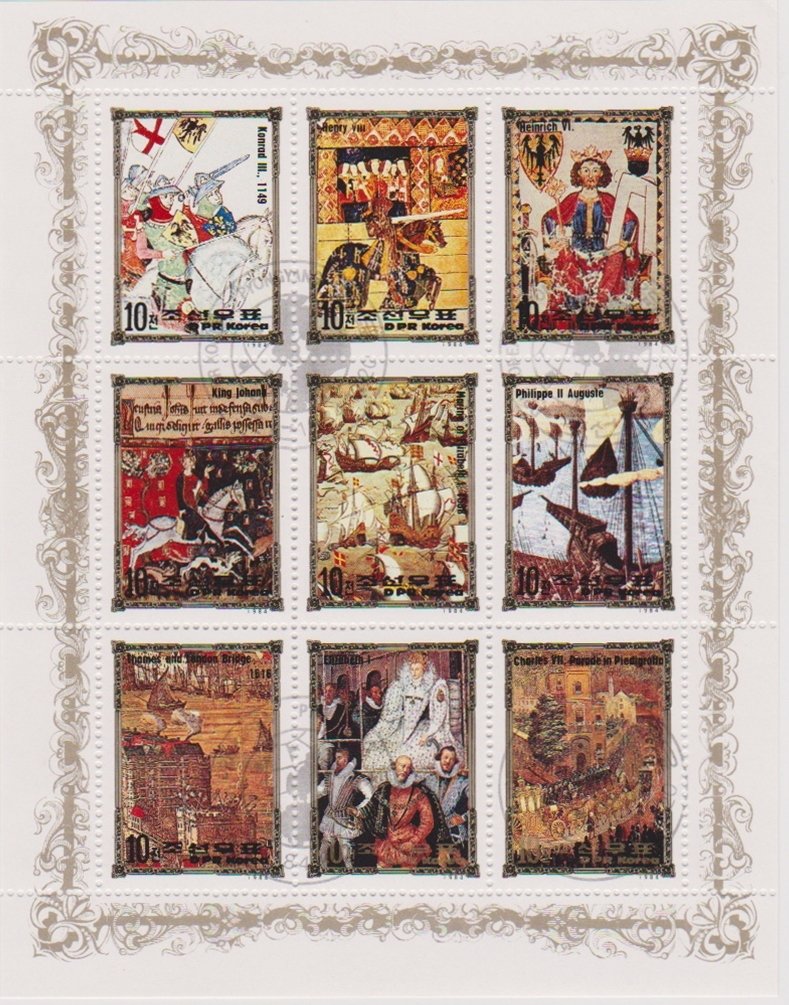The Loyal Wives of Weinsberg
In 1984 North Korea issued stamps depicting German Monarchs. I am not sure why other than they may have enjoyed the artwork. This is the sheet issued:
Images of the various exploits of kings and queens neatly stacked surrounded by an ornate border.
We will be focusing on the gentleman in the upper left, King Conrad III. The story comes from the (for those who care) Chronica regia Coloniensis (the “Royal Chronicle of Cologne”), also called the Annales Colonsiensis maximi and appears as follows:
A. D. 1140. rex urbem Welponis ducis Baioariorum, Winesberg dictam, obsedit et in deditionem accepit, matronis ac ceteris feminis ibi repertis hac regali liberalitate licentia concessa, ut quaeque humeris valerent deportarent. Quae tam fidei maritorum quam sospitati ceterorum consulentes, obmissa suppellectili descendebant viros humeris portantes. Duci vero Friderico ne talia fierent contradicente, rex favens subdolositati feminarum dixit, regium verbum non decere immutare. (Annales Colonsienses maximi, MGH SS, Book 17, p. 759, 17-27)
For those who may be a bit rusty with their latin, let me explain.
King Conrad, in 1140, lay seige to Weinsberg castle in Baden-Wurttemberg, Germany. He vowed to destroy the castle and kill everyone inside. Before he staged his final attack a surrender was agreed to. King Conrad would let the women of the town leave with whatever valuables they could carry on their backs. The men who stayed behind would be killed. The castle residents agreed.
As the gates opened, the towns women, instead of carrying valuables, hoisted their men on their backs and carried them through the gates. Laughing, the king agreed to stand by his words and let them leave saying, “A king should always stand by his word.”


Today the castle is known as Weibertreu which means “wifely loyalty”.



